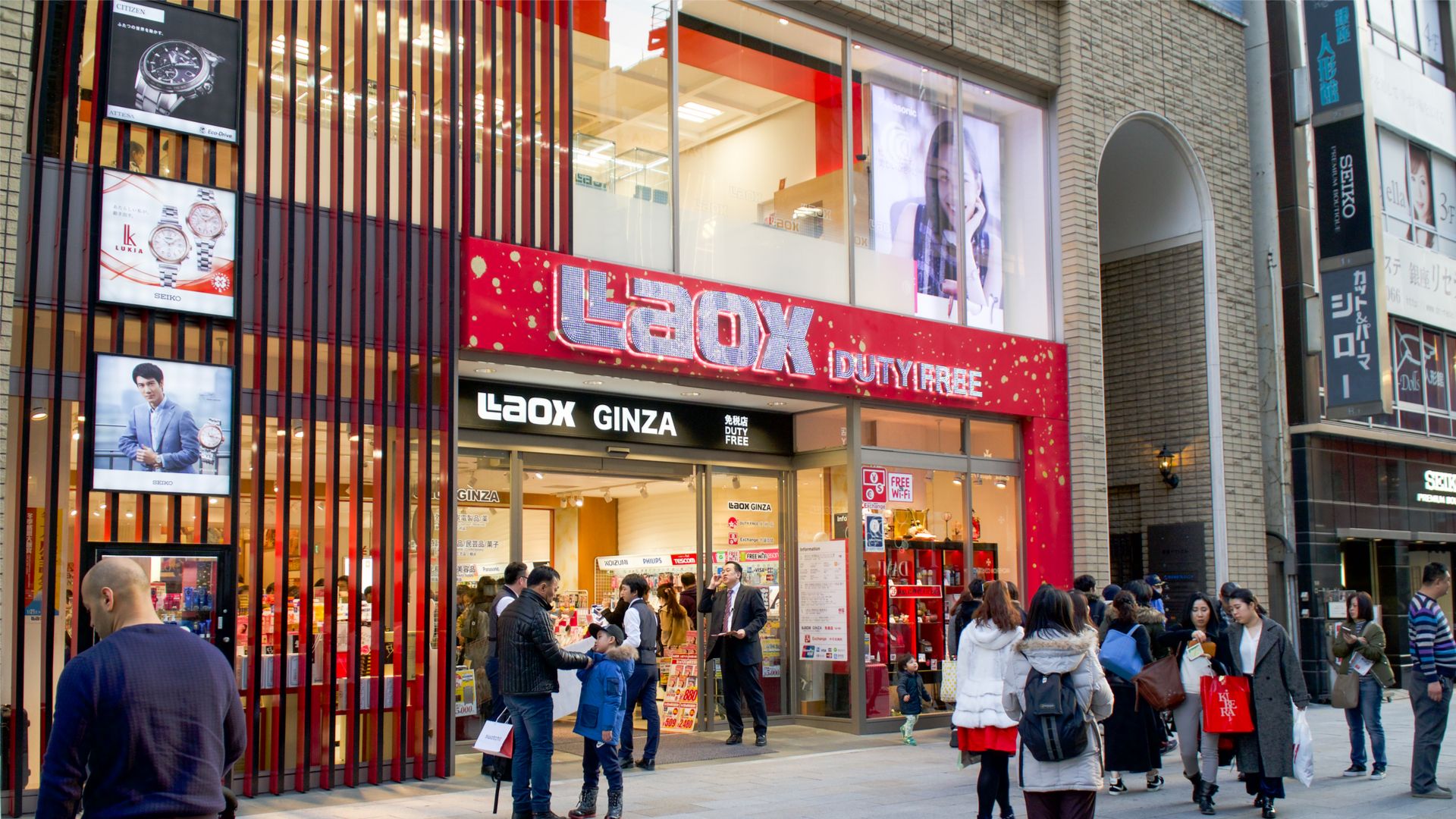Chinese travelers aren’t prioritizing shopping trips, but they may be more willing to make purchases if they don’t have to spend hours browsing the store shelves abroad. At least that’s the hope in Japan.
Japan’s largest duty-free retailer, Laox, is set to simplify the tourist shopping experience through an online-to-offline (O2O) campaign that includes a first-of-its-kind partnership with Alibaba and Alipay. The partnership will allow Chinese travelers to Japan to order products through Alibaba’s online travel agency Fliggy up to a month in advance, make a tax-free payment via Alipay, and then pick them up at one of Laox’s 38 locations in Japan by showing their Alipay transaction and passport. The company also has an e-commerce shop on the Chinese home goods retailer Suning’s website (Suning acquired Laox in 2009).
Making the shopping experience more convenient sounds like a smart plan at a time when Chinese travelers are more interested in seeing the sights and experiencing local culture than spending time in a shopping center. This doesn’t mean that those same travelers aren’t interested in buying a few things, such as Japanese electronics, watches, and cosmetics, particularly when it won’t hinder their ability to partake in all the activities they have planned.
The 90-year-old retailer plans to expand the product offerings for O2O sales, which, they hope, will boost their overall revenue from Chinese tourists. Laox currently offers about 100 products, including cosmetics and skincare products, as well as small appliances, on the O2O marketplace, but it plans to offer more than 5,000. Currently, popular items at the company’s stores include Seiko and Citizen watches, Japanese cameras, and skincare and beauty products.
The company hopes the new sales strategy will reverse its downward trend, which began in July 2018. September was Laox’s worst month, as it saw revenue slide 27.18 percent year-on-year, according to the company’s Q4 2018 earnings. The company has yet to benefit from Japan’s relaxed tax-free shopping initiative that went into effect last summer, particularly as the policy relates to cosmetics that remain popular among Chinese tourists.
Overall sales at Japan’s duty-free shops totaled $235 million (¥26.2 billion) in January, a decline of 7.7 percent from the previous year and the first decline in 26 months. Japanese media outlet The Nikkei attributed it to lower spending habits by Chinese tourists due to the implementation of China’s new e-commerce law, which went into effect on January 1, as travelers worried that the new regulations would force them to pay import taxes upon returning to China. Meanwhile, Japan saw a 19.3 percent year-on-year increase in Chinese arrivals in the month.
Some industry insiders, however, note that the sales decline may not be due to Chinese tourists spending less, as South Korea’s Lotte Duty Free experienced improved sales recently and attributed the trend to Chinese tourists shopping more. In addition, sales at duty-free shops in China have also increased. If Laox’s strategy pays off, it may lead more duty-free retailers worldwide to try this same approach, hoping to entice Chinese travelers to shop more.



